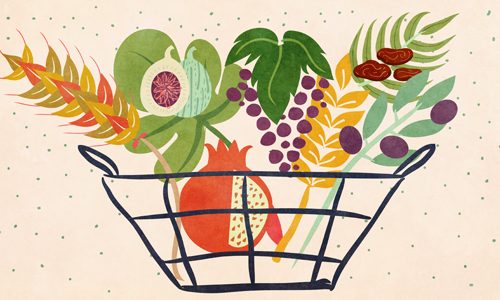One year, I scored one of the more coveted part-time jobs out there for college students: working at a polling station during an election year. There are few jobs for students that pay as well and allow students to bank many hours in a short amount of time. I no longer remember which party hired me; I am not even sure whether it was a federal, provincial or even municipal election. However, I do remember meeting Jane.
Jane was one of the sweetest, friendliest people I have ever met. She was also very chatty. And so, by the end of the three days, I learned a lot about Jane. This seemingly happy and contented woman was an unemployed single mother of three children. They lived in a one-bedroom basement apartment and managed to maintain the household on her welfare checks which she supplemented here and there with odd jobs. Needless to say I was fascinated. I had never met someone like her in my Cote Saint Luc bubble and could not comprehend how on earth she managed. But it doesn’t stop there. Jane’s children all learned music. She baked for an elderly neighbor, a shut-in who had been a music teacher. In return for the treats and the visits, he lent her son one of his violins and taught him how to play. This woman literally had nothing, yet was finding ways to make do and to give to others.
This week’s Parashat, Ki Tavo, begins with a description of the mitzvah of bikkurim whereby Bnei Israel were to bring the first ripened fruit of the shiva haminim, the seven species, to Jerusalem. The description of the offering of the bikkurim is quite elaborate as well. It is the only offering preceded by a speech of the history of the Jewish people, there was musical accompaniment, the Levi’im sang their greetings to the fruit bearers, bringing a real element of simcha, joy, to the event. The expression of thanks, of gratitude for the fruit we receive is cause for great celebration.
As Rabbi A. Twersky MD points out, the “essence of the mitzvah of bikkurim is gratitude”. Gratitude is central to Judaism. We begin our day with “modeh ani”, thankful am I, for another day. We thank Hashem for our health, our food, our wealth, for creating us as we are…. Our gratitude is so essential to our faith that it is to be extended to inanimate objects as well. When G-d sent the first plague onto the Egyptians, he told Moshe to have Aaron turn the water of the Nile to blood, the Nile that had saved the infant Moshe.
Further in the Parasha, the Torah states “And all these blessings will come upon you, and they will reach you” (Devarim 28:2). Commentators have puzzled over this phrasing of blessings or curses that “will reach you”. Rabbi Y. Frand recalls the passage in Vayikra: “And you will eat your bread and be satisfied” (26:5). Rashi explains this to mean that a little piece of bread will satisfy you and provide all the nourishment you need. Rabbi Frand points out that this is the ultimate blessing – “to receive a benefit and be aware of it”. Only when we are aware of the blessing we have, when it reaches us inside and we internalize that it is a blessing can we be truly blessed.
Expressing gratitude has been linked to improved physical and mental health. The Harvard School of Medicine recently published an article “In Praise of Gratitude: Expressing Thanks may be one of the simplest ways to feel better”. To cultivate gratitude, the authors recommend saying thank you, praying, and counting one’s blessings.
In Pirke Avot we learn “Who is rich? He who rejoices from his lot” (128:2). Rashi in Avot (4:1) adds that you may have all the riches in the world, but if you are not able to appreciate the blessing, you are no better off than the poorest of the poor. We can all take a page out of Jane’s book. Her “attitude of gratitude”, recognizing the blessing of the simple and important things in life.: a roof over the family’s head, healthy children, food to eat and family to love. “What more do I need?” she said.
Indeed, she is truly a very rich woman.
Dr. Laura Segall
Head of School

